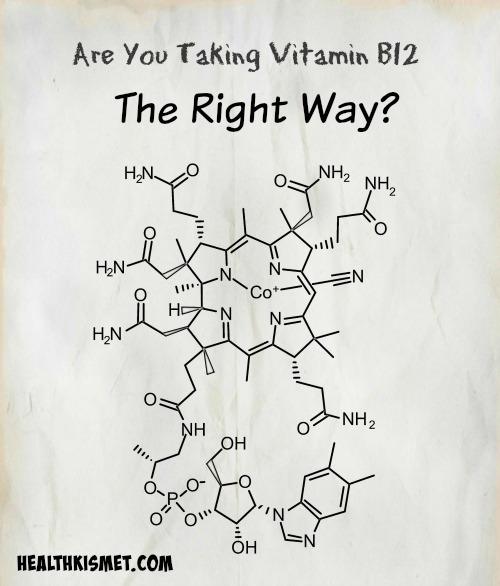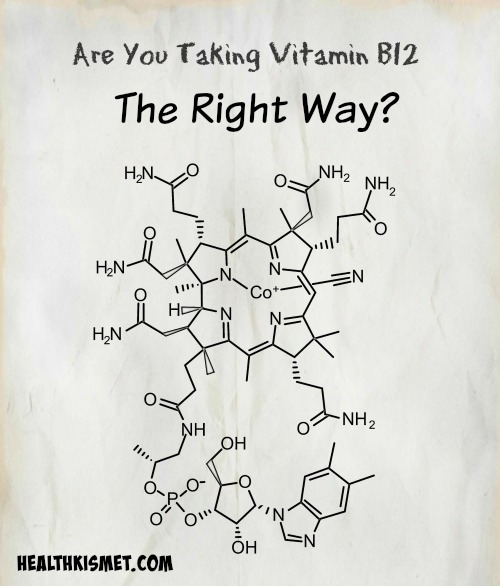Well, well, WELL!
Guess who’s back after taking a brief 39 day blog-o-batical?
That’s right — it’s me, Mr. Vitamin Man. (Oh yeah, and sorry about that delay…..what can I say, being a neurotic misanthrope really complicates things).
A big reason for my writing hiatus is I’ve had a difficult time settling my brain down. Clearing my head for a few hours to think straight. Blocking out the noise. Flowing.
Every time I sit down to put words to paper the whirring ambulance outside leaves a nettlesome rattling inside my head that I can’t make go away. To help mend my concentration I’ve tried all sorts of remedies that never seem to stick: vipassanic meditation, pagan seances, staring at my courtesan night light before I go to bed each night…….none of it seems to work.
Until suddenly……
I had a moment of recognition.
Maybe…….
My brain’s feeding tubes aren’t working right. Perhaps my methionine shunt needs its wheels greased so I can stop under-producing Sam-E and re-stimulate my methylation cycle.
Hmmmmm…….
So that got me thinking……where does this process start? What’s commonly lacking?
And then the light bulb went on.
I NEED TO TURN ON THE B12 SPIGOT!
Problem solved. [footnote]To be brutally honest, this didn’t literally solve all of my problems. Consider these last couple sentences as a way to grab your attention to get you hooked on the REAL info of this post, which is contained below.[/footnote]
[amd-zlrecipe-recipe:12]
Why B12?
Your body’s daily requirements for B12 are about 2.4 specs of dust (micrograms) per day, but don’t let these minute quantities fool you into thinking this amount is easy to get or unimportant if not consumed.
B12 works with folate (as 5-MTHF) and B6 (as pyridoxal-5-phosphate) to both help your body produce its DNA and regulate various brain cycles.
When it comes to your brain, it’s important to note that folate/B12 interactions are at the base of various other pathways that determine the amounts of serotonin, dopamine, and sam-E circulating in your brain. So if you don’t have enough B12 (or folate) then the higher gears of these processes will begin to stall out.
Not surprisingly lack of adequate B12 is a common reason for senescence among the elderly and high homocysteine levels (the indicator used for low folate/B12) are a strong predictor of poor performance on mental tasks like information recall, spatial reasoning, and short term working memory¹. [footnote]Although it’s important to note that B12/Folate supplementation doesn’t reverse these conditions all by itself.[/footnote].
Up to 90% of B12 deficiencies manifest themselves with some sort of neurological symptom².
Why It Can Be Difficult to Get Enough
B12 is often sprinkled into packaged foods like pixie dust and if you look at a label you’ll often see that cyanocobalamin is added in sufficient amounts in lots of packaged foods that ought to supply more than enough of your daily supply.
Why then, is it often difficult for people to get adequate amounts of it?
The problem has less to do with how much we get and more to do with how it’s digested once it’s inside our stomach.
The issues are two-fold:
- Insufficient Stomach Acid. Food based B12 usually comes attached to proteins which need the digestive enzyme pepsin in order to properly break it down and release B12 so it’s available for absorption. In order for your body to activate pepsin you must have a sufficient level of stomach acid. If the pH of your stomach isn’t low enough then you can’t metabolize the B12 from your diet. Insufficient stomach acid is quietly becoming one of the more persistent public health issues, and is a leading cause of digestive issues like GERD, which affects approximately 1 out of 5 adults.
- Autoimmunity. For B12 to get out of your stomach it needs to attach itself to a protein called Intrinsic Factor. Intrinsic factor is the limiting step in B12 absorption. AT MOST your body makes enough intrinsic factor to absorb 5 micrograms/day. However, if you have an autoimmune disease your body will likely make much less than this. IF is secreted by your parietal cells, which are a frequent point of attack for overactive immune systems.
Sublingual Absorption and B12 Mega-Doses: Mega-Good or Overkill?
If you buy a B12 supplement you’ll likely be taking tablets that are meant to be absorbed sublingually. Ie, you let them dissolve in your mouth so they can bypass your stomach (and the IF bottle-neck) and go right into your bloodstream.
And the pill you pop will probably contain B12 in amounts that are yuuuuuuuuuggggggeeeee compared to the standard RDA of 2.4 µg.
You can get B12 tablets that contain as much as 10,000 µg/serving.
A lot of these supplements are taken with a mega-dose of misconceptions about how they work.
- They mostly go unused. Just like your body has limits to how much B12 can go out of your stomach, so to does it have limits to how much can go in your muscles. When intrinsic factor leaves your GI tract the B12 gets transferred to a protein called transcobalamin (TC) and you need TC to carry B12 into tissues. TC can deliver about 1.5 µg/day to your tissues, an amount that’s……..less than the RDA for B12.
So clearly, the vast majority of B12 in these products is being pissed away.
If there is an effect by taking these super high dose B12 supplements it’s not because you’re getting anything close to that amount in your tissues, but rather because that extra amount is saturating your plasma TC enough so that you’re getting just enough extra to feel some sort of effect, even though the amount that’s actually being used is no more than a microgram or two.
You can read some stories of people treating their diabetic neuropathy with 10,000 µg B12 tablets and how nothing less than this amount has any effect. If we can assume they’re being honest about this, it’s probably because of something similar to what I mentioned in the last paragraph. The B12 saturation is intense enough to tip the TC-scales enough in one direction so that their body is getting those extra micrograms of B12 that they weren’t before.
Is There An “Ideal” Form of B12?
Your body uses B12 in three different forms:
- Methylcobalamin – This is the dominant form in circulation and the type that interacts with folate in the methylation cycle. It exerts its effect by acting as a co-factor for an enzyme called methionine synthase. It helps with mental clarity.
- Adenosylcobalamin – This is the form that’s used in your mitochondria. It exerts its effect by acting as a cofactor for an enzyme called Methylmalonyl CoA mutase. It helps with energy.
- Hydroxycobalamin – Your body takes circulating B12 that’s attached to TC and turns it into hydroxycobalamin once it gets inside your cells. Hydroxycobalamin then gets turned into methylcobalamin and adenosylcobalamin.
For most people there’s probably not a big difference between taking one of these or the other. Since your body converts them all to hydroxycobalamin when going into a cell the end result for all of these will be about the same.
Some people might experience an advantage for taking the form that’s specific to what they’re trying to accomplish since it might bypass some enzymatic bottlenecks, but the postcard version for most people is that these are pretty interchangeable.
There’s also cyanocobalamin, which is the red-headed step child of the B12 world. It replaces the “methyl”, “adenosyl”, and “hydro” of the previous three forms and sticks a cyanide molecule in its place. This form of the molecule is cheap to make since it’s the most stable when exposed to air.
In the body it behaves in a manner similar to the other forms of B12 but some people can get sick with cyanocobalamin mega-doses since the cyanide gets transported to your kidneys, where your body flushes it out.
The methyl- and hydroxy- forms are easy enough to find so it’s just as well to use those instead.
1).
2). Stipanuk, et. al. “Biochemical, Physiological, & Molecular Aspects of Human Nutrition.” Ch. 25, pgs 693-732.



Vitamin B12 is really works.
LikeLike
1. Any info on B-12 shots? e.g., effectiveness comparison.
2. Do you subscribe to the “inevitable aging effects” theory. If so, how does one differentiate between the “aging effects” and the “effects” of B-12 supplements.
3. I’ve been experimenting with B12 shots (no notable changes), B12 supplements (no notable changes),
and a combination of B12 shots and supplements (no notable changes). No notable as in a step function change in performance. Comments?
LikeLike
Hi Gary,
1). In general B-12 shots are more effective because they go right into the bloodstream and don’t rely on IF to get transported out of the stomach. Shots are usually used in medical interventions for this reason.
2). I’m not familiar with the inevitable aging effects theory, sorry. I’m familiar with the Telomerase, Mitochondrial/Oxidative stress, and endocrine theories of aging, but that ones new to me.
3). What exactly are you trying to accomplish with your B12 supplements? It’s hard to say without knowing more.
LikeLike
Very helpful article,thank you. But I still don’t know what’s the equivalent in micrograms of 2.4 µg?
I’ve been taking daily 1,000 mgs of sublingual, and now I’m taking it twice a day. I wonder if I’m overdoing it? Thanks so much. :o)
LikeLike